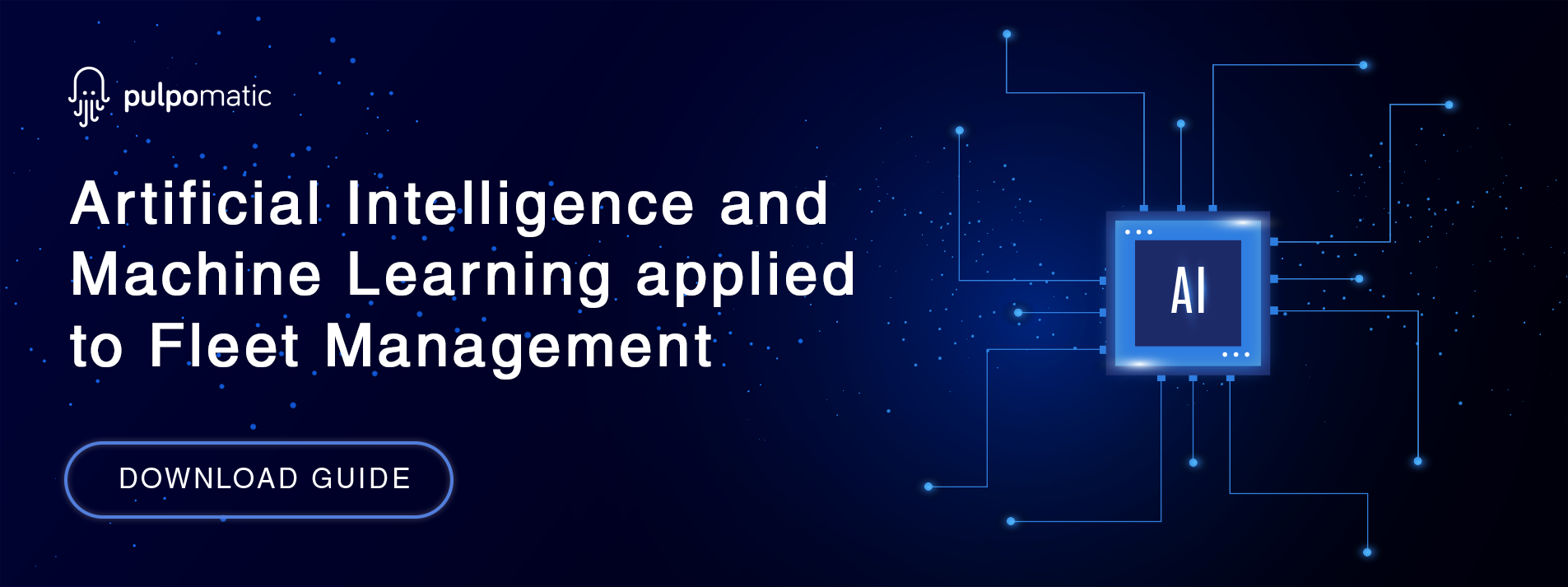The most advanced fleet management software includes artificial intelligence to establish prediction models that will allow projecting different scenarios depending on different possible management options. The benefits of fleet management AI are directly linked to the efficiency, cost reduction, and sustainability of the transport operations. This has turned into a competitive advantage of enormous relevance since it allows benefits that were not possible until recently.
Fleet management AI and vehicle maintenance
Artificial intelligence technologies and the internet of things (IoT) allow companies to save large amounts of money on vehicle repairs. It's not only about a software based on data prediction models that can warn the fleet manager about the consequences of that may arise from missing scheduled maintenance; it is also about saving money on maintenance which is one of the main expenses on fleet operations.
Today, it is possible to feed and train AI models to recommend when is the best time to perform maintenance on a number of vehicles. These maintenance activities are optimized beyond the general manufacturer indications.
Thanks to the telematics gathering of information, the AI technology behind the fleet maintenance software can make a big difference. This difference involves going from preventive maintenance to taking benefits from predictive maintenance.
Using telemetry facilitates going from reactive decision making to a preventive decision making. As a result, a fleet management software with AI technology will display alerts about possible incidents with days in anticipation and will also project models that will enable the fleet managers to take action and make the best decisions.
Route Optimization and AI
The AI of management software is the most sophisticated tool to estimate in real time and automatically which is the best route at all times for transport operations. The algorithms contribute in a decisive way to avoid routes with slow traffic and restrictions by proposing alternative routes.
In this way, the fleet takes the routes with fewer kilometers, the fastest routes, or the ones leading to a lower fuel consumption depending on the objective pursued. All of this has a direct impact on the optimization of fleet operations and the profitability of companies with service fleets or other transports.
The AI could propose different scenarios with reduced chances to break the cold chain that is very important for some types of merchandise such as thermolabile medicines and vaccines. It could also minimize the probabilities of unexpected events that could hold the sensitive merchandise for too long.
Route optimization is directly linked to the concept of traceability in transportation. Knowing every detail about the trip made by each product or each vehicle, in particular for service fleets, becomes more and more important every day since it indicates that every link in the supply chain is working correctly. In particular for last mile deliveries, it is especially important that clients and operators know exactly where their product is and which processes it has completed towards its final destination. In the case of fleet management systems for sanitary and pharmaceutical logistics, traceability is of outmost importance.
Other applications typically used in transportation and logistics
Artificial Intelligence and Machine Learning are very efficient in the implementation of systems used in the optimization of logistic processes of vehicle fleets. They add speed and efficiency, and also allow savings, both in costs and in management time. Today, and in a few seconds, it is possible to evaluate and establish when specific tasks must be done. Are there any additional applications of AI and ML in transportation and logistics? The answer is yes, for example, demand forecasts, driving conditions, and data safety in organizations.
Reluctance to change and adapt to new technologies
As it happens with ICTs in the management of vehicle fleets, the difficulties for the implementation of AI technology in the administration of companies that use vehicle fleets could be higher than indicated by the good forecasts of its diffusion.
One of the main difficulties to implement Artificial Intelligence models in fleet management is the reluctance to change at the core of the organizations. The training received in digital technologies is sometimes insufficient or perceived as insufficient by the employees; this is more common in companies with little commitment to technology and little willingness to change.
It may be of interest: Report on transportation and fleet management in 2020.
Among the barriers that commonly appear is the perception that implementing AI and ML models leads companies to assume very high costs in business organizations. In reality, these implementations are becoming less complicated. On the other hand, there are already preloaded Artificial Intelligence models which only require the introduction of data and are automatically trained to start offering results.

